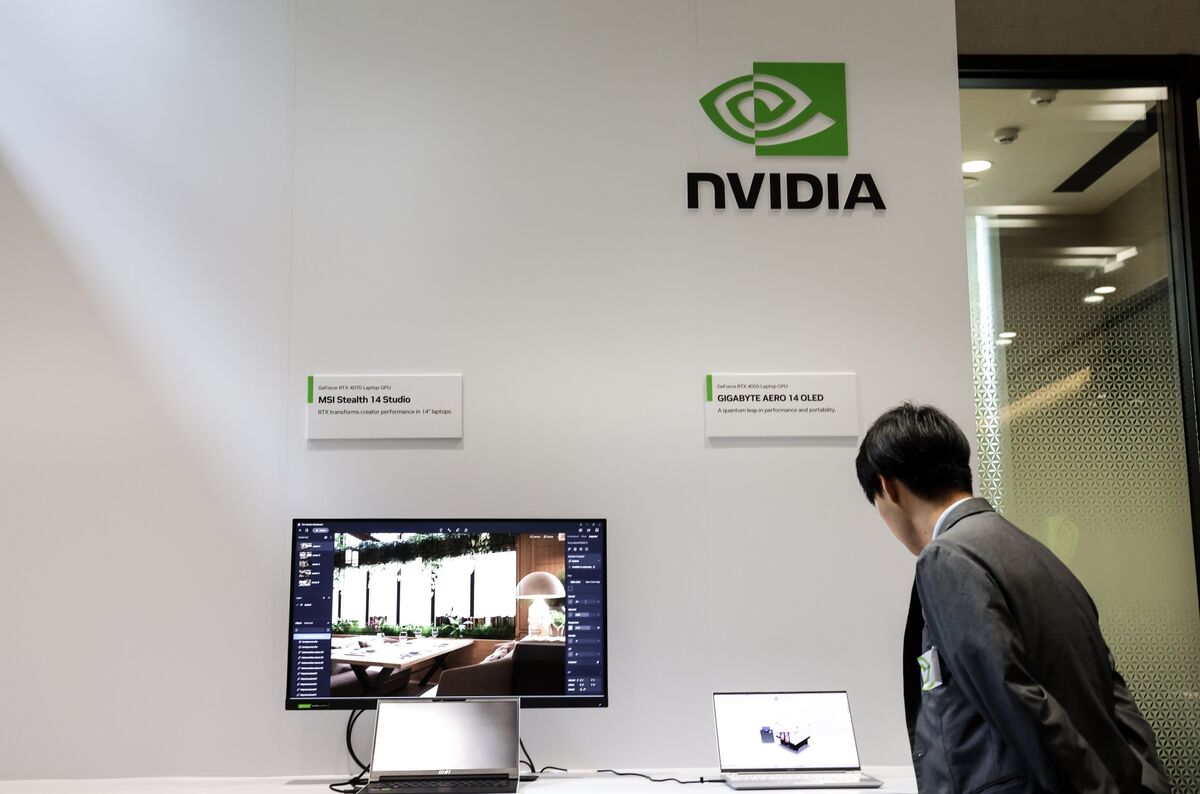Nvidia CEO's Plea To Trump: Revise AI Chip Export Rules

The Impact of Export Restrictions on Nvidia's Business
Export controls imposed on advanced AI chips have dealt a significant blow to Nvidia's business, particularly within the lucrative Chinese market. These restrictions, targeting high-performance chips like the A100 and H100, have directly impacted Nvidia's sales and revenue. The restrictions limit the export of these powerful chips needed for advanced AI applications like large language models and high-performance computing. This has created a ripple effect throughout Nvidia's operations:
- Loss of revenue from the Chinese market: A substantial portion of Nvidia's revenue comes from China. The export restrictions have severely curtailed this crucial income stream.
- Disruption of supply chains: The restrictions have complicated Nvidia's supply chains, forcing the company to adapt and find alternative solutions for delivering its products.
- Impact on research and development investments: The uncertainty created by the export controls has potentially dampened Nvidia's research and development investments, hindering future innovation.
- Potential loss of market share to competitors: Competitors less affected by the export restrictions could gain market share in China and other affected regions.
Broader Implications for the AI Industry
The impact of these export restrictions extends far beyond Nvidia's bottom line. The limitations on access to advanced AI chips have far-reaching consequences for the entire AI industry, potentially hindering global innovation. This has significant implications for:
- Slowed AI research and development: Researchers worldwide rely on access to cutting-edge hardware to conduct their research. These restrictions slow progress and create an uneven playing field.
- Limited access to advanced AI technologies for researchers and businesses: The restrictions limit the availability of powerful AI tools needed for groundbreaking research and the development of advanced AI applications.
- Potential for a global technology divide: This situation could exacerbate the existing technological divide between developed and developing nations, as access to vital technology is limited.
- Impact on US competitiveness in the global AI market: In the long run, these restrictions might harm US competitiveness in the global AI race, benefiting other countries less constrained by export controls.
Huang's Arguments for Revision
Jensen Huang's appeal to revise the export rules likely focused on the significant economic and strategic disadvantages of the current restrictions. His arguments probably centered on:
- Arguments focusing on economic benefits for the US: Easing restrictions could boost US economic growth by unlocking greater market access for Nvidia and other AI companies.
- Emphasis on maintaining US technological leadership: Restricting access to advanced AI technologies could allow other nations to catch up and potentially surpass the US in AI development.
- Proposals for alternative solutions to address national security concerns: Huang likely suggested alternative solutions, such as stricter licensing or monitoring of exports, to address national security concerns while allowing for continued innovation.
Counterarguments and Considerations
While Huang's plea holds merit, counterarguments exist concerning the potential risks of advanced AI technologies falling into the wrong hands. The debate centers on:
- Concerns regarding military applications of AI technology: There are legitimate concerns about the potential use of advanced AI in military applications.
- The risk of technology transfer to adversarial nations: The export of these powerful chips poses a risk of technology transfer to countries that could use it for purposes detrimental to US interests.
- Potential solutions for mitigating risks while promoting innovation: Finding a balance between national security and promoting innovation is a complex challenge requiring innovative solutions like enhanced export controls, stricter licensing, and advanced monitoring systems.
Conclusion: The Future of AI Chip Export Rules and Nvidia's Role
The debate surrounding AI chip export rules highlights the complex interplay between national security, economic growth, and technological advancement. Nvidia's experience underscores the significant impact of these restrictions on both the company's business and the broader AI industry. Huang's plea for revision emphasizes the need for a balanced approach that safeguards national security while fostering innovation. The future of AI hinges on finding this delicate balance. To learn more about this critical issue and its impact on the future of AI, explore resources that delve into the ongoing discussion regarding AI chip export regulations and Nvidia's fight for AI chip export reform. Understanding the impact of AI chip export regulations on Nvidia is crucial for navigating the future of this transformative technology.

 Clayton Keller 500 Nhl Points Missouris Second
Clayton Keller 500 Nhl Points Missouris Second
 Maximize Paul Gauguin Sales Ponants 1 500 Flight Credit Program For Agents
Maximize Paul Gauguin Sales Ponants 1 500 Flight Credit Program For Agents
 Mini Cameras Chaveiro Guia Completo De Compra E Uso
Mini Cameras Chaveiro Guia Completo De Compra E Uso
 Behind The Scenes Understanding Chris Columbuss Departure From The Harry Potter Series
Behind The Scenes Understanding Chris Columbuss Departure From The Harry Potter Series
 Upcoming Fortnite Update Lara Crofts Return Is Likely
Upcoming Fortnite Update Lara Crofts Return Is Likely
